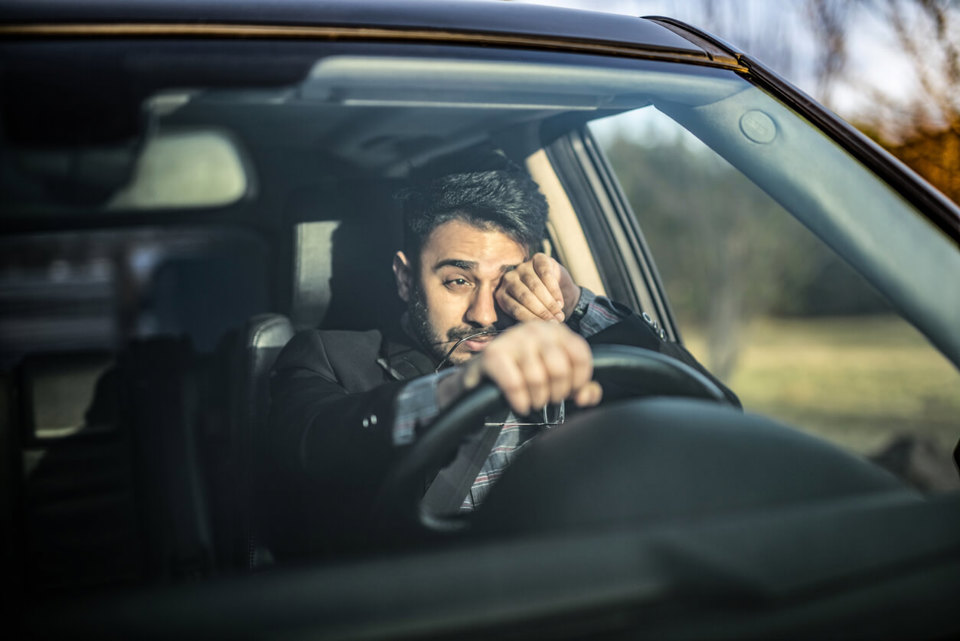After conducting his own research, Mills was able to go back to his GP and show him the symptom’s and get him referred to a sleep clinic.
Mills was then given a testing kit which measured his sleeping pattern over 3 nights’ sleep at home, when returning the equipment to the clinic, they found Mills was having 50 sleep apnoea episodes a night, halving the time he was actually asleep.
The treatment for sleep apnoea varies with the severity of the condition, available treatments include a mouth piece worn at night, a mask and an operation is also available in the most severe of cases.
Once diagnosed, drivers are legally obliged to notify the DVLA and you cannot legally drive again until the DVLA is sent confirmation that treatment is being received.
What the NHS says
Obstructive sleep apnoea (OSA) is a condition that causes interrupted breathing during sleep. The muscles and soft tissues in the throat relax and collapse sufficiently to cause a total blockage of the airway for 10 seconds or more.
The lack of oxygen causes the person to come out of deep sleep and into a lighter state of sleep, or a brief period of wakefulness, in order to restore normal breathing.
The repeated interruptions to sleep caused by OSA can make the person feel very tired during the day.
A person with OSA will usually have no memory of breathlessness, so they are often unaware that they are not getting a proper night's sleep. According to the NHS, the condition often goes undiagnosed. Only one in four people with obstructive sleep apnoea are diagnosed with the condition.
Left untreated, OSA can increase the risk of, high blood pressure, heart attacks, type 2 diabetes and it can lead to poor performance at work.
What the DVLA says
A DVLA spokesperson said: "All drivers must, by law, inform DVLA if they develop a medical condition, including sleep disorders such as Obstructive Sleep Apnoea (OSA), which may affect their ability to drive safely. Once DVLA is informed, medical enquiries are undertaken to establish whether the driver should retain their licence.
In the case of OSA, driving will be allowed to continue, provided satisfactory control of the condition is achieved. OSA can be successfully treated in most cases and the response to treatment is usually rapid."
Sleep apnoea – The symptoms
• Shortness of breath that awakens you from sleep
• Intermittent pauses in your breathing during sleep
• Excessive daytime drowsiness
• Poor concentration
• Morning Headaches
• Depression



















Login to comment
Comments
No comments have been made yet.